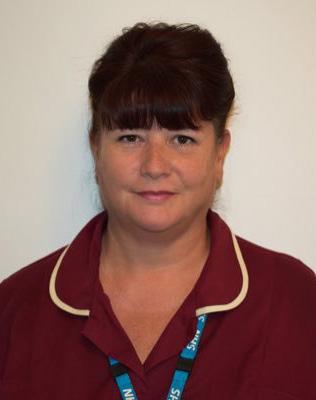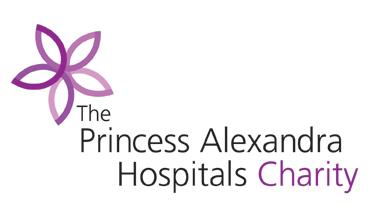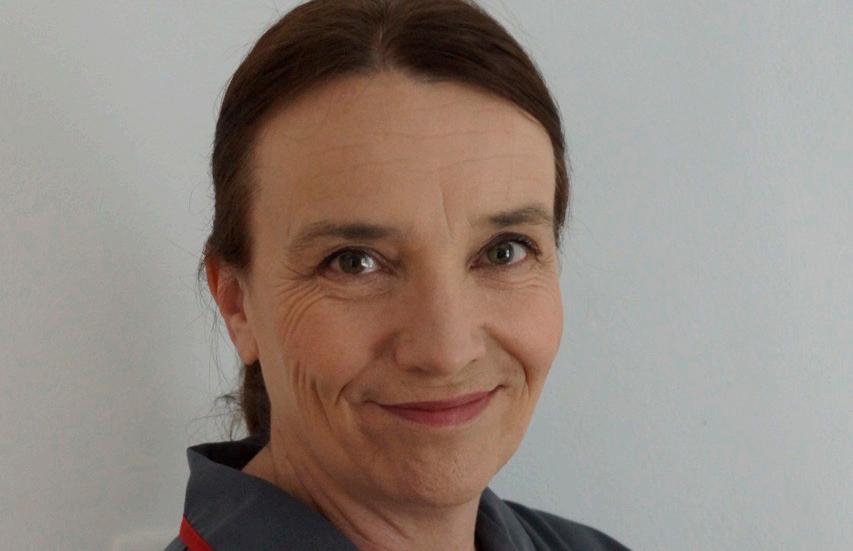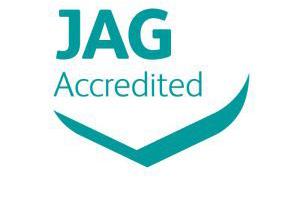
8 minute read
60 second interviews
funds to help support their health and wellbeing.
Ogechi Emeadi, director of people, organisational development and communications said:
A huge thank you to Cleanbrite for their very kind donation, we cannot emphasise enough how much this means to our people during the fight against coronavirus.
We have been overwhelmed by how much the local community want to help our staff and recognise the dedication and commitment they are showing in these challenging times.
Co-operative donate generously to hospital team that helps patients prepare to go home Celebrating International Nurses’ Day International Nurses’ Day took is celebrated around the world each year on the anniversary of Florence Nightingale’s birth. The day provides us with the opportunity to highlight the contribution of nursing colleagues and reflect on the vital care they provide every day.
To mark the occasion, we caught up with Debbie Thomas for a 60
The work of the dedicated team who help patients at PAHT get ready to go home has been generously supported by a donation of over £900 from the Co-operative Local Community Fund.
The hospital have a specialist team who focus on helping a patient get ready to leave and ensure that they have the right conditions at home.
The team have a bank of spare clothing which can be given to vulnerable patients who may be admitted to hospital with few or no additional changes of clothing of their own.
Stephanie Newman, voluntary services discharge coordinator at PAHT, said: second interview. Debbie is one of our longest serving nurses at PAHT and joined the trust in 1989 as a critical care enrolled nurse.
When did you join PAHT and how have you found your experience so far?
I joined PAHT in 1989 as an enrolled nurse in critical care and went on to undertake further studies to become a registered general nurse. My intention was never to work at one hospital for so long, however, PAHT is such a friendly place with really caring staff.
We are delighted that the donation will allow us to purchase more clothing for our vulnerable patients.
This ensures that the dignity of all patients is supported through the hospital process. Also, for some of our patients who are homeless, they will leave with sufficient clothing to move into their temporary accommodation.
The donation will continue to help hundreds of vulnerable people in our community – we are
place on Tuesday 12 May, which
so thankful.
What steps did you have to take
Debbie Thomas.
to become a nurse?
When I first started nursing, you didn’t have to complete a degree pathway; I was always a more practical hands on nurse than academic, however, I completed
additional studies and courses whilst working to get me to where I am today.
Why did you choose to become a nurse?
I knew that I wanted to be a nurse since I was very young. I constantly played hospitals with my dolls and would set up a hospital in my dad’s garden shed and tried to nurse injured animals back to health. All my school and college studies were directed towards a career in nursing.
Can you outline your role at the hospital?
I worked my way up within our critical care department to become a senior sister. Next, I worked within our critical care outreach team and became the lead nurse for sepsis and acute kidney injury.
I’ve always enjoyed the challenge of looking after acutely unwell patients, as well as disseminating my knowledge to our junior staff, empowering them and giving them the skills to provide high quality care and improve patient outcomes.
Last year, I was seconded into the role of surgical and critical care matron, however since the COVID-19 outbreak I was asked to step back into a matron role to support staff and oversee the smooth running of the extended critical care capacity during this extremely challenging time for us all.
Can you describe any stand out moments you have had so far?
There have been many stand out moments throughout my career, however becoming a senior sister in the Intensive Care Unit (ITU) was a very proud moment, and more recently I was very proud to receive an award and recognition for all the work I have done relating to sepsis and acute kidney injury.
What is the most challenging part of your role?
The most challenging part of my role is the dealing with distraught families whose loved ones are so sick, especially if the patient is young. It’s such an emotional time and as a senior nurse you are not only looking after the families, but the wellbeing of our staff too.
What is your favourite/most rewarding part of your role?
The most rewarding part of the role is seeing our patients get better, so that they start their journey to eventually go home. It’s a lovely and rewarding moment when some of our patients return to see us once they are well enough.
What advice would you give to somebody who is considering a career in nursing?
Nursing is an amazing career and although it is a lot of work, both mentally and physically, it is also a very rewarding career knowing that you are making a difference to patients’ lives every day.
How has nursing changed over the years?
Nursing has become a lot busier over the years, and, the demand for beds sometimes exceeds our capacity, however, we rise to the demand. The way that we have all come together as an organisation and faced the challenge of the ongoing COVID-19 pandemic has been outstanding; I’m truly proud to work alongside such amazing colleagues and know that this is where I was meant to be.
Shining the spotlight on our fantastic midwives
International Day of the Midwife was an opportunity to shine the spotlight on our 171 valued midwives at PAHT. The day marks the global recognition and celebration of midwives and highlights the difference that their essential care makes to so many women and families.
We caught up with Victoria Pay, midwife, for a 60 second interview. Victoria joined PAHT in 2016 as a volunteer on our Postnatal Ward and has since completed her degree to become a midwife, read the full interview below:
When did you join PAHT and how have you found your experience so far?
I joined the team in 2016 as a volunteer on the Postnatal Ward. I am now working as a qualified midwife in all areas across maternity, including the community, which is where I am based at the moment. Everyone has been so supportive and I continue to be inspired by the exceptional care that the team provide to women and their babies every day.
Can you talk us through the steps you took to become a midwife?
I began my midwifery journey as a mature student and was
required to undertake studies first in order to be able to apply for the midwifery degree.
I chose to study an access to higher education diploma for nursing/midwifery through distance learning, alongside my part time job and being a mother to my two children.
The course covered psychology and biology and included a refresher in Maths, English and IT. In February 2016, I had the honour of becoming a volunteer on our Postnatal Ward, where I gained a brilliant insight into maternity care.
I applied for the midwifery degree and was over the moon to receive an offer to begin my studies in September 2016. I completed my third and final year in 2019 and began working as a fully qualified midwife in the October.
Why did you choose to become a midwife/what inspired you?
Even as a child, I had always had an interest in midwifery - it was the fantastic maternity care I received that inspired me to pursue my dream to become a midwife.
Can you outline your role at the hospital?
My role as a midwife includes working alongside women and their families to develop personalised care plans and provide them with support, advice and care throughout all aspects of their pregnancy, birth and the postnatal period.
Can you describe any stand out moments you have had?
There are so many stand out moments working as a midwife, but I will always remember the 40th birth I supported as a student and the first birth I supported as a qualified midwife.
What is the most challenging part of your role?
There are many challenges a midwife can face, however, a big challenge that I have faced so far is not only adjusting from being a student to a qualified midwife, but also adapting to the challenges and changes we have all faced during the current pandemic.

What is the most rewarding part of your role?
It’s hard to choose one favourite part my role, however, being able to support women and their families through their journey is very special.
Roughly, how many women have you helped to give birth?
I have helped roughly over 100 women to give birth, including those from when I was a student midwife.
What advice would you give to somebody who is considering a career in midwifery?
For anyone considering becoming a midwife, my advice is to go for it!
Make sure that you research different universities and find out what the entry requirements are. The open days will give you a feeling on where will be your first choice when you apply to UCAS. It’s a good idea to read current midwifery news and look into what the role of the midwife entails to increase your knowledge - midwifery journals, the Royal College of Midwives and the Victoria Pay.
Nursing and Midwifery Council are good starting points.
My time volunteering on the wards helped me to prepare for my training and gave me a fantastic insight into midwifery care.
Where do you see yourself in five years’ time?
I enjoy all aspects of providing women with midwifery care. In the future I would love to develop my practice skills and knowledge further by attending additional courses and may consider looking into learning how to perform certain ultrasound scans for
expectant mothers.









